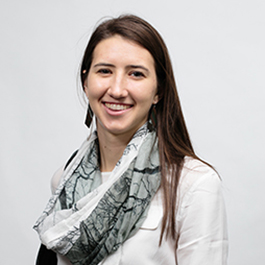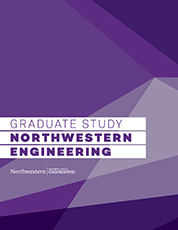Ellie PearlmanMedical Student, Perelman School of Medicine at the University of Pennsylvania

Alumni Interview
"EDI goes by so quickly, so it's important to be intentional about what and how you learn. In healthcare, excluding medical product/device design, human-centered design is still very new, so while gaining experience in healthcare projects is important, learning well-rounded skills and the ability to lead a design project is the most important."
When you started EDI, did you know what industry you wanted to work in or were you still exploring?
I came to EDI after completing my pre-medical coursework in college, but very unsure if I wanted to be in the medical field. I wasn't sold on being a doctor because the system seemed too broken to be able to work within it. So with a small background in Human-Centered Design, I thought I'd try a career pivot by going to EDI. Little did I know, my two passions would find a way to merge together. With the skills I learned and the healthcare project experience I gained at EDI, I felt energized and ready to dive back into the healthcare space to fix the problems that originally drove me away from medicine.
Tell us about an EDI course that made an impact on you.
How can I pick just one? My thesis project was a large reason I had the confidence and energy to go into the healthcare space. Being able to work at Lurie Children's Hospital with a physician, Dr. Marcelo Malakooti, who is also active in Human Centered Design was so motivating. I realized that this was the setting in which I thrived. Having ownership over such a large project was also empowering. But I also think a few other courses were key to my career trajectory because they made me a more well-rounded designer - Designing Product Interactions helped me think deeper about our interactions with designs around us and the emotionality of designs (and gave me more experience with Arduino), Design Communication and Methods/Industrial Design helped me better communicate my ideas, and Service Design introduced me to a whole new field (the one in which I currently do most of my work). Lastly, learning how to be a compelling presenter from each of my classes has been one of the most useful skills I learned at EDI.
Is there anyone you worked with during EDI that you consider a mentor?
Basically everyone. Amy Schwartz, my thesis mentor, was a really important figure in my education. Her coaching throughout my thesis project gave me the confidence I needed to take the leap of faith to go to medical school. Professor Greg Holderfield's Design Strategy class really helped me take the time to strategize my own career, giving me the insight I needed about my own life. Dr. Malakooti at Lurie was also a great help to me.
How did you decide on your EDI thesis project?
Scoping a project is something that I have had to work on a lot during and after EDI. So for me, deciding on my project was very difficult. It took me several weeks to decide which project idea I ultimately wanted to run with. The only thing I was sure of was that I wanted to work on a project in the community with community stakeholder buy-in. This ended up being challenging because all of my upfront research required meeting with community members, which takes time. I ultimately decided on my project at Lurie with Dr. Malakooti because he had identified a compelling and specific problem of the appropriate scope. Having his mentorship, buy-in, and desire to bring this project to life after my thesis had ended was really important to me. We're still working on it now!
What advice do you have for an EDI student interested in working in your industry?
My biggest piece of advice is to spend time identifying your goals and learning objectives for a course or a project or an internship and then advocate to make them happen. If you want to practice making a presentation, developing an interview guide, or leading a brainstorm, seek out the opportunity to do so! EDI goes by so quickly, so it's important to be intentional about what and how you learn. In healthcare, excluding medical product/device design, human-centered design is still very new, so while gaining experience in healthcare projects is important, learning well-rounded skills and the ability to lead a design project is the most important.

